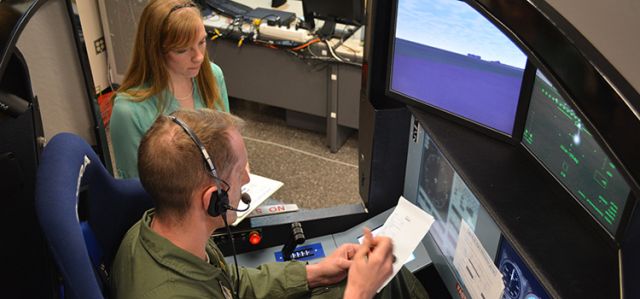Eliminate Final Exams in Intro to Flight Through the Use of Portfolios?
Document Type
Conference Paper
Publication Date
1-2006
Publication Source
44th AIAA Aerospace Sciences Meeting and Exhibit
Abstract
A portfolio can be an extremely powerful tool to determine the degree of learning experienced by a student throughout the semester, and to force the student into a higher level of reflective learning and meta-cognition not generally possible for the student by studying for and taking the traditional in-class, timed final exam. Portfolios have been common in art, photography, journalism, business, architecture and other professions for quite some time.
Strong justification can be found in learning theory for using Portfolios in engineering. Some of the numerous different types of portfolios will be briefly introduced in this paper. Portfolios have not, however, found widespread use within engineering. Even though engineering design provides the most immediately obvious application of portfolios within engineering, different kinds of portfolios can be implemented across the engineering curriculum. This paper will review the existing body of literature and specifically address the results of using portfolios in an Introduction to Flight course given to Sophomore year students in the Fall of 2004 at the University of Dayton. Feedback was solicited from the students throughout the semester to ensure open and clear communication and understanding. It was found to be important to address student fears immediately and answer their questions about the entire process and the instructor's expectations. This communication eased the initial discomfort with the concept of using portfolios. By the time the students had submitted their portfolios, all of the students were extremely positive about the entire portfolio experience. Most importantly, the portfolios submitted made clear to both the student and instructor, the level of understanding and comprehension of the breadth and depth of the subject being examined in a manner not possible through the use of a traditional in-class timed final exam.
ISBN/ISSN
978-1-62410-039-0
Copyright
Copyright © 2006, American Institute of Aeronautics and Astronautics
Publisher
American Institute of Aeronautics and Astronautics
Place of Publication
Reno, NV
eCommons Citation
Altman, Aaron, "Eliminate Final Exams in Intro to Flight Through the Use of Portfolios?" (2006). Mechanical and Aerospace Engineering Faculty Publications. 82.
https://ecommons.udayton.edu/mee_fac_pub/82
COinS




Comments
Permission documentation is on file.